





Making a telescope yourself mainly aims at reducing expenditures and optimize quality. I bought optical parts (primary mirror Ø150 mm F/D = 5, secondary mirror, eyepieces and finder) to focus on making the mount. All my telescopes are Newton type.
I only used simple tools, wood and recycled materials. These limitations pushed me to innovate to have simple, stable and precise telescopes.
All these telescopes use the same optical parts that I take apart from one to install into another.
Focussing is usually achieved with a rack-and-pinion or a capstan. Those 2 systems have 2 drawbacks:
I only had simple tools and I did not want to buy anything that would make the telescope move.
Therefore, I invented a hydraulic system. Two syringes are filled with water and connected together with a flexible hose. The observer's awkward movements are not transmitted to the telescope. Without air bubbles, water in incompressible and transmits the manual adjustment to the eyepiece with a precision estimated to 10 µm, which is better than most commercial telescopes of this size.
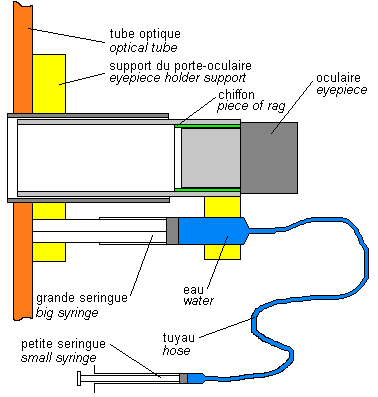
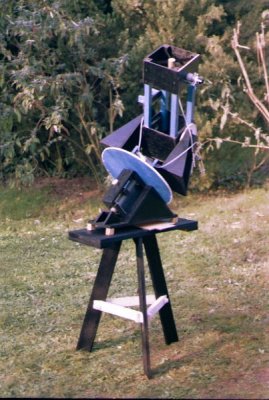
The equatorial axis is tilted by 45° to compensate Earth rotation.
Unfortunately, that telescope was not stiff enough. The equatorial axis made of PVC was too flexible and the fork too weak and the image oscillated too much. Moreover, looking into the eyepiece when it was pointing downward (see picture) was uncomfortable.
Therefore I took it apart to make a stronger altazimutal mount to improve image stability and comfort.
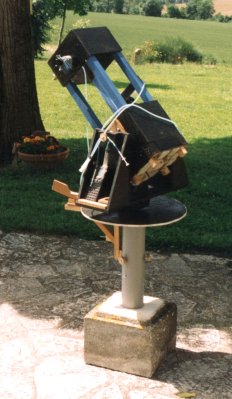
Two improvements: the altazimutal mount and the pier. I replaced the PVC equatorial axis by a steel azimutal axis.
The fork was still too weak but the azimutal structure was making it more acceptable. The PVC pier was too flexible.
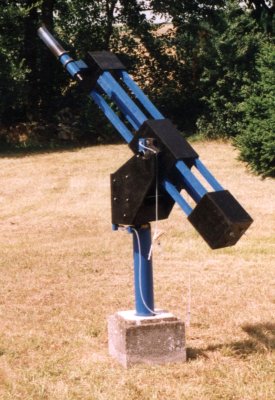
Several improvements:
Complete change of structure: the Nasmyth focus lets the observer sit on a chair to look into the eyepiece. The pier is filled with concrete.
It became possible to observe comfortably and for a long time. You can touch the pier or lay your feet on the concrete block without disturbing the image. Image stability surpasses the one of commercial telescopes of similar size.
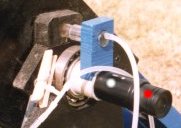
Azimut and height movements also have hydraulic controls with syringes.
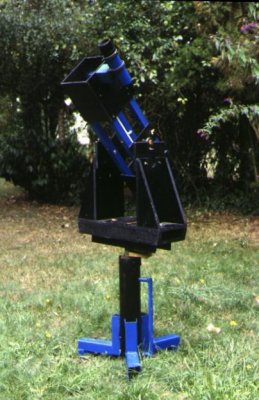
To keep stability and make transportation easier, I built a simpler altazimutal mount with a fork inspired from the two first telescopes but stronger.
I remove azimutal and height hydraulic controls and only kept hydraulic focussing.